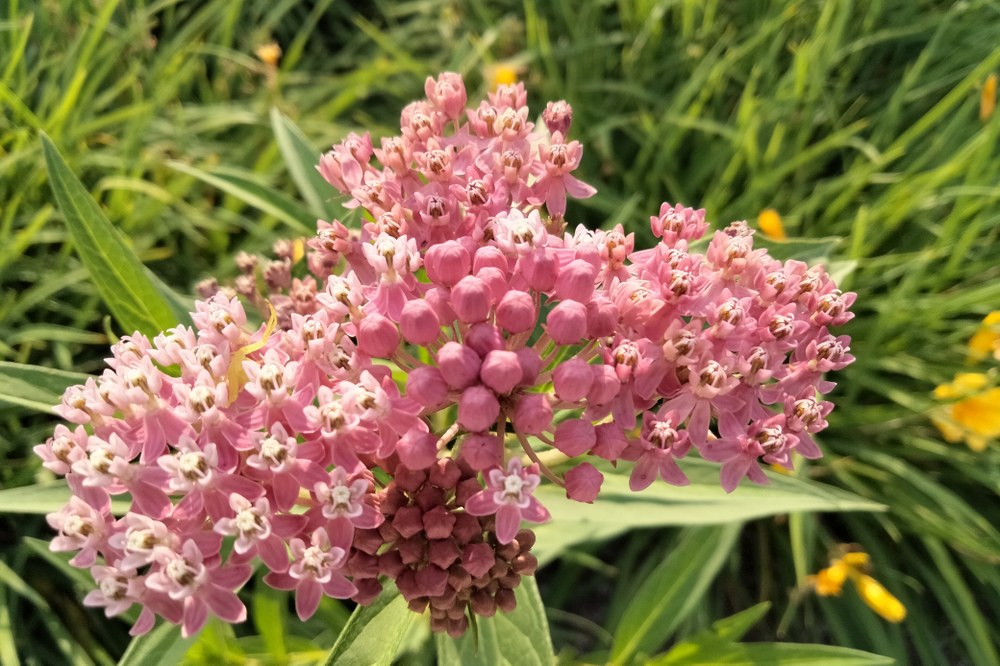Research shows that native pollinators are attracted to native plants four times more than non-natives. Certified Pennsylvania Pollinator Friendly Gardens incorporate a variety of native trees, shrubs, and flowers that support native pollinator nutrition.

Swamp milkweed (Asclepias incarnata).
To certify a Pennsylvania Pollinator Friendly Garden, gardeners must include trees, shrubs, and flowers, with early, mid, and late bloom times. Various flower colors, shapes, and sizes should be selected, avoiding modern hybrids. Gardeners should place plants in drifts of three to five plants per species. Host plants for butterfly larvae are required, such as milkweed for monarch caterpillars or spicebush or sassafras for spicebush swallowtail caterpillars.
The Master Gardeners of Wyoming County faced the same challenge many home gardeners face in sourcing native plants locally - a limited selection. To overcome the challenge and fill the garden with a diverse representation of native plants, some Master Gardeners germinated native flowers from seed, including wild columbine and butterfly weed. The Master Gardeners also purchased native plug plants for the project. Although these plants will be on the smaller side this year, and many will not flower until next year, plug plants are an economical option that offers the opportunity to view a broader selection of native flowers once the plants are fully established.
During the 2022 Wyoming County Fair, visitors to the Pollinator Friendly Garden Project will see mid and late-season native perennial blooming flowers, including common milkweed, butterfly weed, purple coneflower, black-eyed Susan, New England aster, pink tickseed, ironweed, turtlehead, obedient plant, yarrow, blazing star, and Culver's root.
The Pollinator Friendly Garden Project at the Wyoming County Fairgrounds is funded in part by the Wyoming County Room Tax Fund and the Endless Mountains Visitors Bureau.

